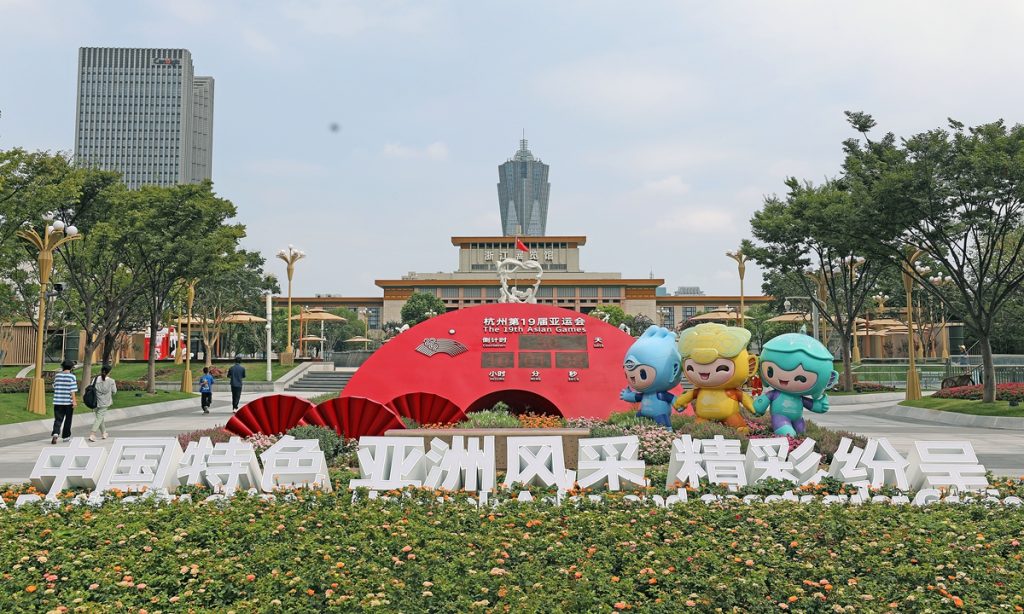China's top cyberspace regulator to regulate activities of athletes' fans for the network environment of the Asian Games in Hangzhou

China's top cyberspace regulator announced on Monday the launch of a two-month nationwide special campaign to regulate the network environment for the 19th Asian Games in Hangzhou, East China's Zhejiang Province, addressing problems such as fan conflicts involving insults and comment manipulation.
According to the notice released by the secretary bureau of the Cyberspace Administration of China, the Copyright Management Bureau of the Central Publicity Department and the office of the Organizing Committee of the 19th Asian Games in Hangzhou, the campaign kicked off on Monday and will run through October 29. The campaign will focus on eight categories of prominent problems.
Issues to be addressed include the incitement of insults among fans and the manipulation of comments.
The cyberspace regulator will also rectify the problem of excessive sensationalism and "fan circle culture" in the sports event coverage.
The campaign will target "human flesh search" activities that deliberately expose personal information of athletes, referees and coaches, leading to online violence, as well as the release of unlawful and harmful information that spreads insults, defamatory, abusive and attacking content, causing harm to individuals' physical and mental health.
The authority will also regulate internet news and information service activities without authorization or permission, as well as activities that create and disseminate fake sports event videos with generative artificial intelligence (AI) technology.
Other behaviors that will be rectified during the campaign include spreading false information about the Hangzhou Asian Games and Asian Para Games, the related regional public policies and social and livelihood issues, fabricating rumors about disasters and accidents, illegal activities, food and product quality issues, and other false information that could cause panic.
Besides, unlawful marketing activities that promote commodities and services or collect personal information, private identification or biometric information in the name of the sports events will also be targeted.